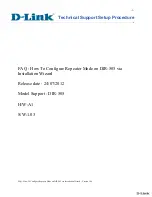
MAINTENANCE:
Always keep the heater area clear and free from combustible
materials, gasoline and other flammable vapors and liquids.
Keep the vent areas (slots in the bottom and the top at the front
of heater) clear at all times so combustion is ventilation air is not
obstructed. Visually inspect the pilot flame and burner periodical-
ly during use so combustion and ventilation air is not obstruct-
ed. The pilot flame should be blue in color (not yellow) and will
extend beyond the thermocouple. The flame will surround the
thermocouple just below the tip, see Figure 4. A slight yellow
flame may occur where the pilot flame and main burner flame
meet. The burner(s) should be bright orange (with a slight blue
color around the border, a red-orange haze that is visible on
the burner is acceptable) and without a noticeable flame. A blue
flame that rolls out at the top indicates an accumulation of dust,
lint or spider webs inside the main burner assembly. If the pilot
is yellow or the burner has a noticeable flame, cleaning may be
required. Use the following procedure to inspect main burner
assembly. It is necessary to periodically check the burner(s)
orifice and burner venturi tube to make sure they are clear of
insects/nests or spider webs that may accumulate over time. It is
strongly recommended that these maintenance instructions be
performed annually. A clogged tube can lead to a fire.
1 Allow heater to thoroughly cool before performing
any maintenance.
2 Remove disposable 1 lb. cylinder(s) from heater or turn OFF
gas supply at remote cylinder valve, and disconnect
hose from heater.
3 Remove wire guard from heater by gently removing the four
screws attaching the wire guard.
4 And then remove the (3) acorn nuts and gently remove the
burner assembly exposing the burner venturi and pilot
assembly
5 Inspect interior of casing assembly for accumulation
of dust, lint or spider webs. If necessary, clean interior
of casing assembly with a vacuum cleaner or apply air
pressure. Do not damage any components within casing
assembly when you are cleaning.
6. Inspect and clean main burner orifice located at bottom
of burner venturi tube, by using a vacuum or apply air
pressure at orifice opening.
7 Inspect and clean pilot (mounted to bracket) by using a
vacuum or apply air pressure through the holes in the pilot
indicated by the arrows in Figure 5.
WARNING:
Never use needles, wires, or similar cylindrical
objects to clean the pilot to avoid damaging the calibrated
orifice that controls the gas flow.
8 Apply air pressure into burner assembly to remove
dust, lint or spider webs.
9 Reinstall burner assembly and wire guard.
8
A
Burner Orifice
ODS Pilot Assy.
Wire Guard
Burner Assembly
Control
Knob
Door
Plastic Base
Assembly
Gas Train
Assembly
Upper Hinge
Lower Hinge
Pilot Flame
Pilot Air Hole
Burner Assembly
Venturi Tube
NEVER LEAVE THE HEATER
UNATTENDED WHILE BURNING!
Fig. 4 - Burner Orifice Location
Fig. 5 - Pilot Assembly
Fig. 6 - Burner Assembly
































